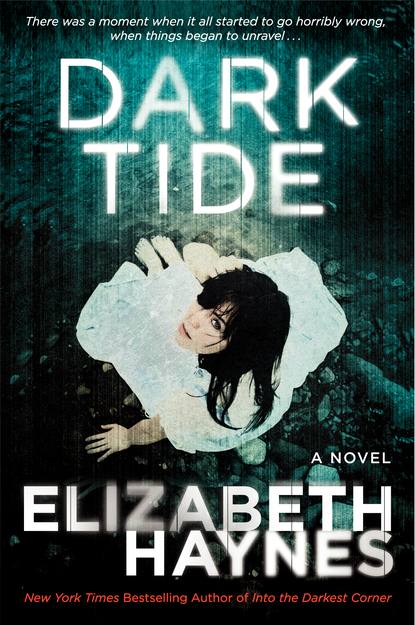To help you concentrate, experts say you first need to
identify what's derailing you. Here are six common concentration wreckers and
what you can do about them.
1. Multitasking
"Multitaskers might feel like they’re getting more
done, but it almost always takes longer to multitask than to devote your
attention to one thing at a time," says
psychologist Lucy
Jo Palladino, PhD, author of
Find Your Focus Zone: An Effective New
Plan to Defeat Distraction and Overload.
We lose time shifting between tasks. In a study published in
the Journal of Experimental Psychology: Human Perception and
Performance, researchers from the University of Michigan and the Federal
Aviation Administration conducted tests in which people had to solve math
problems or classify geometric objects. The researchers found that people lost
time when they switched between tasks. And when the tasks were more complex or
unfamiliar, they took even more time to switch tasks.
The key, Palladino tells WebMD, is be choosy about when you
multitask. It’s OK to talk on the phone while you’re folding the laundry, for
example, but not while you’re working on a difficult or high-priority task --
say, proofreading a report.
2. Boredom
Dull tasks can sap your ability to focus and make you more
vulnerable to distractions.
"When you’re bored, almost anything else can be more
attractive than what you’re doing," says Gordon Logan, PhD, a psychology
professor at Vanderbilt University in Nashville, Tenn.
Logan's tip: Give yourself little rewards, like a coffee or
a favorite snack, for staying on task for a specific period of time.
"When a colleague of mine had to review a complex grant
proposal, she rewarded herself with a chocolate-covered raisin each time she
finished reading a page," Logan says.
It’s also good to schedule breaks -- to take a 10-minute
walk outside, for example -- so you’ll have something to looking forward to and
a chance to recharge.
Boredom is one case when multitasking may work in your
favor.
"Multitasking is often a help when you’re doing
something so boring that you’re understimulated," Palladino says.
If you’re having a hard time focusing on washing the dishes
or filing your receipts, for instance, listening to the radio or texting a
friend at the same time may keep you motivated.
3. Mental Distractions
When you’re
worrying about
money, trying to remember if you took your vitamins, and replaying a
conversation in your head that didn’t go as planned, it's hard to settle down
and stay focused on a project you’re trying to complete.Those types of
distractions -- the ones that are in your head -- “have a lot of power over
us,” says Michael J. Baime, MD, clinical associate professor of medicine at the
University of Pennsylvania School of Medicine and director of the Penn Program
for Mindfulness.
One way to let go of these nagging thoughts is to quickly
write them down. Add items to your to-do list, for instance, or vent your
frustrations in a journal entry.
If you’re stressed about a certain problem, find a time to
talk about it with someone you trust. "If you have a supportive, active
listener, it can help drain away some of the tension that is bouncing around in
your head," says Daniel Kegan, PhD, JD, an organizational psychologist.
"When you’re meditating, you learn to manage
distracting thoughts so they don’t compel your attention so strongly. You
discover how to refocus the attention and take it back and place it where you
want it," Baime tells WebMD.
In a 2007 study, Baime's team found that people who took an
eight-week meditation course improved their ability to focus their attention.
To learn the basic techniques of meditation -- such as
focusing on the sensation of breathing and then transferring that focus to
other sensations in the body -- Baime recommends taking an eight-week
mindfulness-based
stress reduction
class, either in person or online.
4. Electronic Interruptions
"It’s easy to fall into aiding and abetting in your own
distraction by checking your email all the time," Kegan says. "If
you’re trying to concentrate, you can lose your train of thought every time you
hear 'You’ve got mail'."
We often feel like we need to respond to an email, text,
instant message, or voice mail as soon as it’s received. But Palladino suggests
drawing some lines so you’re not letting technology control you.
Carve out blocks of time when you can focus on your work
without electronic interruptions. Try checking your email at set times each day
(rather than constantly), and close your email program the rest of the time.
It may also help to change location. Take your laptop to a
spot where you know you won’t have wireless access to the Web for a few hours,
for example.
5. Fatigue
Many studies show that loss of sleep impairs attention,
short-term memory, and other mental functions. "Your attention falls apart
when you’re sleep deprived," Baime says. Sleep needs vary, but most adults
do best with seven to nine hours of nightly sleep. Getting at least seven hours
of sleep will go a long way toward improving your focus during the day.
Also, try scheduling tasks that need more concentration
during the times of day when you’re feeling the most alert. "Pay attention
to your own biorhythms," Kegan says, "and learn which times of day
you work best."
6. Drug Side Effects and Other Medical Issues
If your concentration problems hamper your ability to
function at work or at home, or if you’re also noticing a physical symptom like
weight gain or insomnia,
tell your doctor. Poor concentration can stem from conditions such as ADHD,
sleep apnea,
depression, anemia, or thyroid disease. Certain
medications, such as
those used to treat depression, epilepsy, or
influenza (flu)
infections, may cause concentration difficulties as a side effect, as well.








